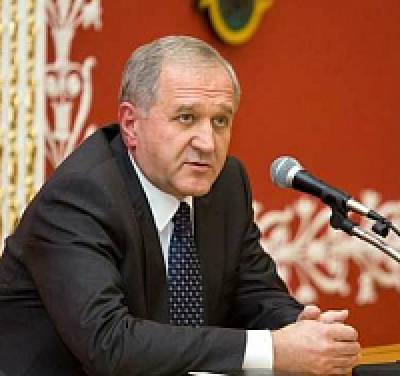On 19th of October, on the day of the 100th anniversary of the Chamber of Commerce and Industry, a traditional business breakfast was held at Ilyinka street in the Chamber of Commerce and Industry of the Russian Federation. The guest of the meeting was the Head of the Federal Customs Service Vladimir Bulavin.
Due to the time frame of the meeting, not all participants’ questions were asked. Questions that were not announced during the meeting were sent to the FCS of the Russian Federation for an additional collaborative work. Also, questions of the ARPM:
The question concerns the import into the territory of the Russian Federation of APIs intended for the production of medicinal products and their enlisting into the State Register of Medicines.
The problem resides in a fact that there is an ambiguous interpretation of the legislative requirements of medicines’ circulation for procedures of APIs enlisting in the State Register of Medicines, and as a result pharmaceutical companies have difficulties in importing into the territory of the Russian Federation the APIs used in the manufacturing of medicines.
According to the Part 1, Article 27 of the Federal Law № 61-FL of 12.04.2010, after the decision on the government registration of medicine, the data of the API, which is used for producing the medicine, enlists in the State Register of Medicines. However, in accordance with the Part 4, Article 45 of this law, the production of medicines is allowed of the API which is already included in the State Register of Medicines.
The customs authorities, in accordance with the rules of the custom legislation, believe that when monitoring the import of medicines, the information about them should be included in the State Register of Medicines.
Consequently, the problem appears when a producer, when importing the API to Russia, should firstly include it in the State Register of Medicines, and then once again provide the same documents for enlisting it into the same Register when registering the medicine.
Such issues and restrictions on the importation of APIs create the administrative barriers for companies and increase the cost loading, which negatively affects the well-timed release of new medicines, including innovative ones. What does the Federal Customs Service do to solve this issue related to legal conflict in the legal regulation of the importation of APIs?
Earlier, regarding this issue, the ARPM appealed to the federal executive authorities interested in solving the normative and lexical collision in order to develop a common law practice, as well as holding a consensus meeting with the representatives of the Ministry of Healthcare, the Ministry of Industry and Trade, and the stakeholders of the pharmaceutical market. The Federal Customs Service supported the holding of the consensus meeting, having said that, the meeting has not taken place so far.
We hope that an efficient dialogue with the Head of the FCS of Russia Vladimir Bulavin will speed up the holding of the consensus meeting and will allow us to overcome collectively the existing barrier.
The ARPM thanks the Russian CCI for the opportunity to participate in the meeting with the Head of the FCS Vladimir Bulavin and congratulates the Chamber of Commerce and Industry of the Russian Federation on its 100th anniversary.

